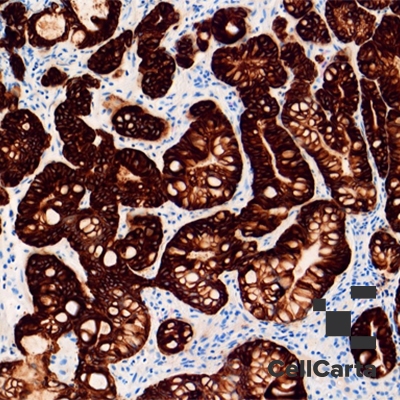Alternative Name(s): Pan cytokeratin

Test Description
Cytokeratins are polypeptide chains which form structural proteins called intermediate filaments comprising the epithelial cell cytoskeleton. Cytokeratins are divided into acidic and basic subfamilies. They occur in pairs in epithelial tissues, the composition of which varies with the epithelial cell type, stage of differentiation, cellular growth environment, and disease state. Nineteen different forms of cytokeratin have been characterized by their molecular weight and isoelectric pH in both normal and malignant epithelial cell lines. Monoclonal antibodies against various cytokeratins may be useful in determining the origin of poorly differentiated tumors. As cytokeratin peptides are associated with epithelial cells, these peptides are clinically important markers to aid in distinguishing carcinomas from malignant tumors of non-epithelial origin such as lymphomas and sarcomas. PanCK IHC using clone AE1/AE3/PCK26, reportedly reacts with the 56.5kD, 50kD, 50’kD, 48kD, and 40kD cytokeratins of the acidic subfamily, and 65-67kD, 64kD, 59kD, 58kD, 56kD, and 52kD cytokeratins of the basic subfamily.